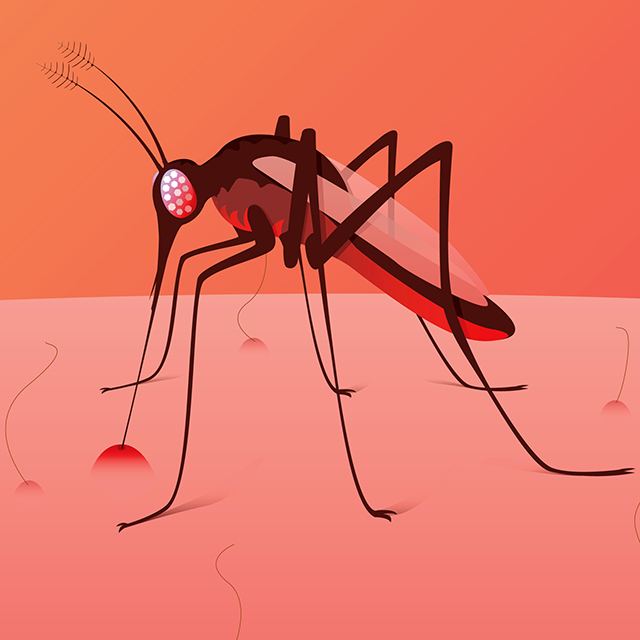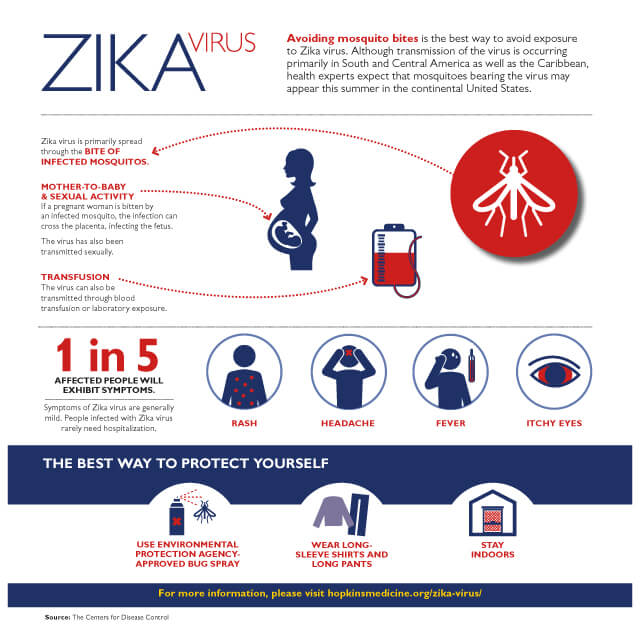The spread of zika virus and its link to microcephaly, a birth defect that affects the brain, have been the top headlines in recent national and international news. But many may not know that the virus is reported to cause eye abnormalities in up to more than half of babies with the illness.
The Wilmer Eye Institute is able to diagnose and, in many cases, treat eye concerns associated with Zika virus, including cataracts and other vision issues. Johns Hopkins has opened the Johns Hopkins Zika Center at The Johns Hopkins Hospital, which will provide comprehensive, multidisciplinary, expert care within one institution.
“We are joining the fight with our comprehensive team of experts from more than a dozen specialties from the school of medicine and Bloomberg School of Public Health, including the Wilmer Eye Institute. Our goal is to care not only for children but also for the whole family and patients of all ages with Zika virus,” says ophthalmologist William May, co-director of the Zika center. The center will rely on the collaboration of physicians, faculty members and staff members from Johns Hopkins Medicine and the Bloomberg School of Public Health, including those in cellular engineering, maternal-fetal medicine, epidemiology, infectious diseases, ophthalmology, orthopaedics, pediatrics, physiotherapy, psychiatry and social work, all of whom will coordinate care according to patients’ needs. This includes fundamental and translational scientists, such as Hongjun Song and Guo-li Ming, both professors in the Institute for Cell Engineering whose work has defined the causal relation of Zika virus and neurologic disease. Medical experts from Brazil, a country greatly affected by Zika virus, will also serve as members of the center.
Adult and pediatric patients worldwide can be referred to the center by outside physicians or through several Johns Hopkins departments and divisions. Patients can also call the Wilmer Eye Institute to schedule an appointment. A case manager will work with patients to develop a care plan and identify specialists with whom the patient should follow up.
“When a patient, particularly a pregnant woman, contracts Zika virus, it can be a tremendously alarming experience,” says Jeanne Sheffield, director of maternal-fetal medicine for The Johns Hopkins Hospital. “Our team will be able to coordinate our efforts to determine patients’ needs and provide the best care possible.”
The Zika center team will also be involved in research to learn more about the virus, for which many unknowns still exist. “Our No. 1 priority will be focused on our patients, but our hope is that our care will also lead to many new developments in the effort to fight this potentially devastating disease,” May says.
For resources on what you need to know about preventing Zika virus, visit



